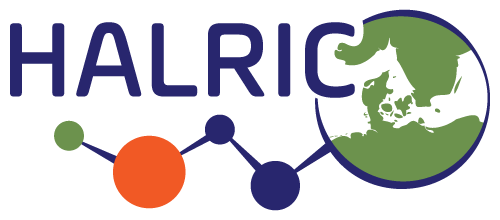October 2024 marked a significant boost to HALRIC’s industry engagement efforts with the addition of two new members to the project team. Veronica Lattanzi has joined the HALRIC Ambassador team, bringing with her extensive expertise in commercial services at Neutron and X-ray particle accelerators from amongst others the Danish Technological Institute. Veronica holds a PhD from the Center for Molecular Protein Science at Lund University and served on the Board of the LINXS Institute. She will focus on enhancing industry collaboration within the HALRIC pilot projects and as part of Medicon Valley Alliance she will benefit from the proximity to companies in the Life Science cluster.
Joining HALRIC’s industry outreach initiatives at Medicon Village is Francesco Bez, who brings experience from the Swedish companies Redoxis and ImmuneBiotech, as well as a PhD in Biomedicine & Neuroscience. Both Veronica and Francesco are set to play crucial roles in HALRIC’s mission to deepen industry ties and increase participation in pilot projects from new user groups.
With company involvement in 10 pilot projects HALRIC is gaining momentum in its work towards the goal of involving 35. Aiming to open doors for Life Science collaboration across borders, HALRIC continues to bring together key stakeholders from industry and research to foster new partnerships and innovation.
As part of these efforts, Life Science Nord (LSN), one of the 21 partners in the HALRIC project, organized the ‘HALRIC Meets Industry’ workshop. It served as a prelude to the HALRIC conference held in Hamburg on September 24-25. Manager of International Affairs, Sarah Niemann welcomed numerous industry representatives from the German LSN cluster to network with HALRIC Ambassadors and other project members across the Scandinavia-Hamburg Region.
Among the speakers was Juan D. Sánchez Herida from JD Coils, industry partner in the HALRIC pilot project working to advance cellular infection models in the search for new antibiotics. He said: “We aim to develop cheap and flexible microfluidic cell chambers optimized for multimodal studies of structural functions by advanced microscopy and cell metabolism by NMR. As a small company we cannot tackle big scientific problems alone, such as resistance towards antibiotics, and it strengthens the scientific core of JD Coils to be part of this truly collaborative project with DTU and the University of Hamburg.”
At the continued HALRIC conference, it was suggested to increase the focus on gathering project ambassadors and industry experts around common challenges, to better identify needs and match them with Research Infrastructure (RI) techniques. The conference also underlined the importance of engaging more companies to explore new techniques through pilot projects with RIs and HALRIC partners.
One of the upcoming opportunities for companies to find out more about the HALRIC project will be on the 10th of December in Copenhagen. Hosted by the R&D Network at Medicon Valley Alliance, the meeting ‘Unique Research Infrastructures – Goldmines for Life Science Companies’ will offer businesses a chance to discover how cutting-edge Research Infrastructures can support their innovation efforts.
